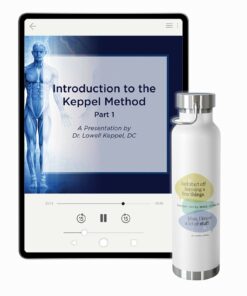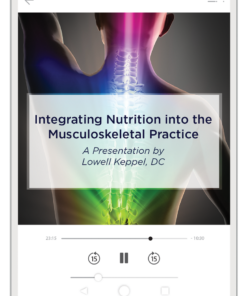In a previous edition of Good to Know, I discussed blood pressure fluctuations and information people may not have considered when addressing their blood pressure. In this edition, let’s look at the physiology involved with blood pressure.
When I was in chiropractic college, I was taught the normal blood pressure was 120/80 mmHg (with a range 20 mmHg either higher or lower, making 140/100 and 100/60 the outer limits of normal). Remember, I said high blood pressure should be determined only after several blood pressure readings. If high blood pressure is indicated, then it would benefit the patient to determine the cause.
Let’s review. Blood pressure is the measurement of pressure against vessels walls by circulating blood. The first number is the systolic reading, which measures pressure during contraction of the heart. The second number is the diastolic reading, or the pressure during the relaxation of the heart between heartbeats. The systolic value is generally considered more important as a reflection of the health of the arteries. The diastolic number provides insight about kidney function and the back pressure of the arteries.
Blood pressure problems, like nearly all health issues, reflect an underlying nutritional deficiency. One of the most common deficiencies related to blood pressure involves the B vitamins. The B vitamins are noted for nerve control. Now, the B vitamin family is very large and, as Dr. Lee understood, encompasses different qualities. For example, the Cataplex B-Core vitamins, with thiamine and the anti-paralysis vitamin B4, stimulate nerves and cause vasoconstriction. Then we have the nerve-relaxing and vasodilating group in Cataplex B2 (formally Cataplex G). This product includes riboflavin, choline, inositol, and B6. Its vasodilating properties make it essential for treating high blood pressure cases.
To quote Dr. Lee: “Why do we need vitamin G complex? First, to protect the heart. It also serves as a natural physiological tranquilizer, since it acts to dilate the blood vessels and so improves the circulation to most organs, including the heart. Muscle and nerve tone are not possible without vitamin G complex, and although the effects of its lack may not be evident by average observation, doctors know that this is one of the most widespread of all deficiency states. The vitamin-G-supplied worker is certainly better equipped to do his job.”
Cataplex B2 is therefore the first go-to for high blood pressure issues. In Joseph Antell’s book, Adjuvant Protocols for Healing, he leads off with Cataplex B2 at nine per day. This dose will relax nerves and dilate the blood vessels, reducing pressure in the arteries. Many times, this is all you need. But remember, Cataplex B2 can be used for so much more: supporting liver, adrenal, and stomach function; and even treating warts and cataracts!
Having thick blood is another condition that stresses the circulatory system and leads to high blood pressure. Blood should have the consistency of water, but many people have thick blood. This can be due to too much fat in the blood resulting from medical conditions such as diabetes, hypothyroidism, alcoholism, kidney disease, liver disease, or stress. It can also be due to excess calcium in the blood. Soybean Lecithin will help thin the blood. Lecithin is a natural metabolizer of fat and cholesterol. Although some soy products can have negative effects, don’t worry about the soybean aspect in this product. There are NO proteins or phyto-estrogens in soy oil, so this product will not cause any issues. But it will help the body rid the blood of fat!
When addressing high blood pressure, also consider adding Orchex, the physiological tranquilizer. This will help calm the nervous system. The stressed-out person will be in sympathetic overload, which prepares the body for confrontation. In this normal state of reaction, blood pressure rises to deliver blood to the muscles. But when there is no physical danger—just perceived danger—this stress response is unhelpful. Orchex will calm the brain and the nervous system to allow the blood vessel to relax and have normal tone.
In the next Good to Know, we will look even deeper into the blood pressure issue. We will talk about additional factors such as liver, kidney, and adrenal function, and how we can systematically support the hypertensive patient.
But it is good to know where to start!
Images from iStock/Prostock-Studio (main), Rasi Bhadramani (image of heart).





